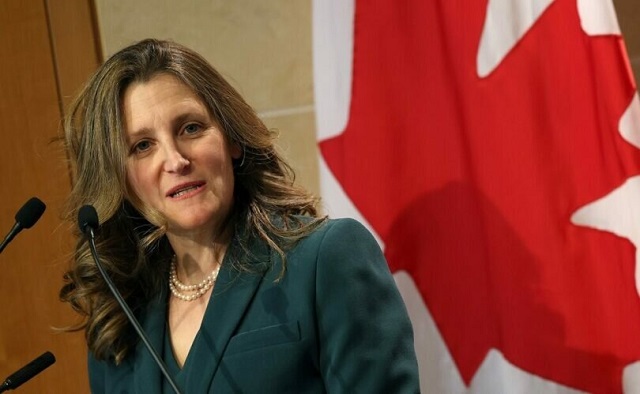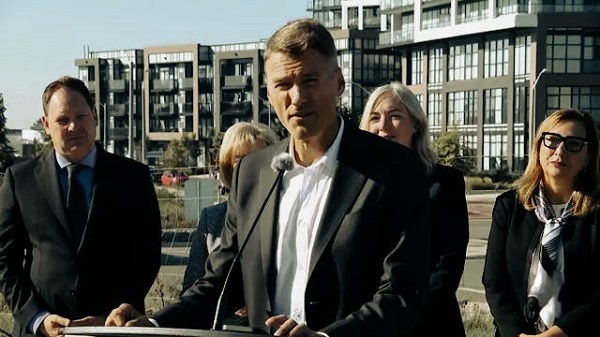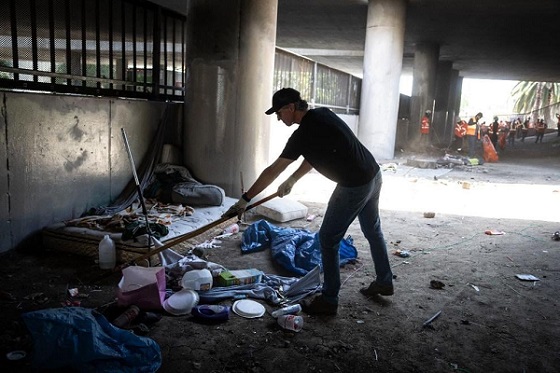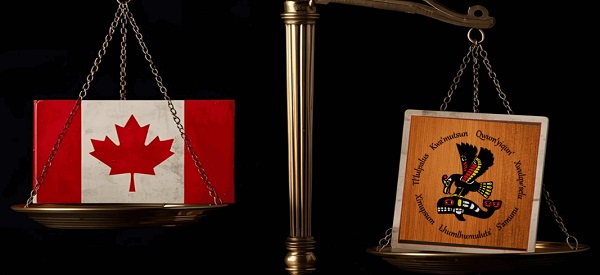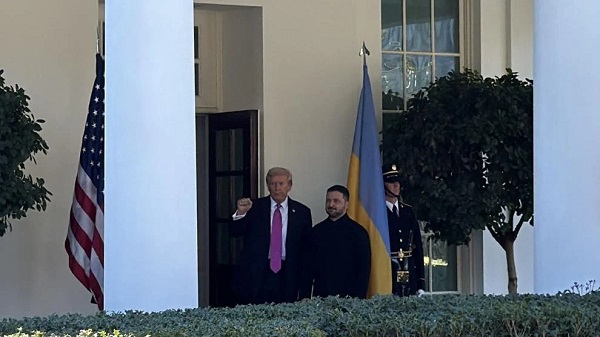From The Center Square
A 104-unit tower is being pursued at a cost of $90 million. State staff noted would it cost $865,656 per apartment — more than California’s median sale price for an entire house.
Federal taxpayers might be on the hook for more than $1 billion over the lifetime of three downtown Los Angeles skyscrapers designed to house the homeless, state records show.
State and city programs provide the funding and financial tools to construct the three towers. But federal Section 8 Housing vouchers will be used to repay the state and city and fund private developer fees and investor returns over the 55-year life of the buildings.
“Taxpayers are being forced to foot the bill for over $800,000 per unit for homeless housing,” said Howard Jarvis Taxpayers Association Vice President of Communications Susan Shelley in an interview with The Center Square. “There should be an audit to determine if this is genuinely the best option to provide housing or if this is just making a lot of people rich off the taxpayers’ dime.”
These towers are projects of the Weingart Center Association, a homeless services nonprofit and major recipient of taxpayer funding, which was created by the Weingart Foundation. The Weingart Foundation describes itself as a “private grantmaking foundation advancing racial, social and economic justice in Southern California.”
Last year, Weingart’s 19-story, 278-apartment, $167.7 million tower was completed in Los Angeles’s Skid Row, which hosts the nation’s highest concentration of homeless people.
Constructed at cost of over $600,000 per unit, the tower was funded with $32 million of the city’s homeless housing bond, a $1.8 million land loan from the city, $48.7 million in deferrable loans from the California Department of Housing and Community Development, $56.9 million in tax credit equity and $85.3 million in tax-exempt bonds. The state treasurer’s report noted the project would “have positive cash flow from year one” and would be occupied entirely (except for the managers’ units) with people using federal Section 8 project-based vouchers.
The developer, Chelsea Investment Corporation, earned $18.3 million in development fees for the project, according to the project’s tax credit application.
While voucher details for new tower was not available, another nearby $171 million Weingart tower for the homeless that opened in June 2025, featuring 298 resident units and four manager units. It received federally-funded, city-administered housing vouchers worth $194 million over 20 years, as reported by the Los Angeles Business Journal.
Over the lifetime of the second tower, these vouchers, if renewed, would be worth $534 million.
Assuming proportional voucher revenue for the first tower, the two completed towers’ 55-year, federally-funded voucher revenue would be worth $1 billion.
Weingart is now pursuing a third, 104-unit tower at a cost of $90 million. State staff noted would it cost $865,656 per apartment — which is more than California’s median sale price for an entire house.
This tower — to be constructed at $1,048 per square foot, or as much as high-end luxury homes in the Los Angeles area — would also rely on Section 8 vouchers to fund occupancy, which, over the lifetime of the building, could provide nearly $200 million in revenue for developers. The Related Companies, the developer of the second and third project, will reportedly earn $10.4 million from developing the third tower.
Its development fee for the second project could not be established by the time of publication.
The investors who purchase the tax credits and invest in the building also receive distributions on the building’s profits, offering lower but much safer returns than the private market because the Section 8 vouchers nearly guarantee revenue and occupancy.
Market-rate, private-sector housing construction has collapsed in Los Angeles in recent years, with permitting approvals for government-regulated, income-restricted “affordable” housing rising from 24% in the prior four years to 60% in fiscal year 2023-2024. Real estate experts blame Measure ULA, the voter-approved “Mansion Tax.”
A UCLA recent report ties the transfer taxes to significant declines in housing production and property tax revenue growth.
“[ULA] has damaged the real estate market in the City of Los Angeles by adding a 4 to 5 and a half percent tax not just on mansions, as it was advertised, but also on apartment developments, commercial real estate —all properties in the City of Los Angeles above $5.3 million in value,” said Shelley. “HJTA is the proponent for a new initiative called the Local Taxpayer Protection Act to Save Proposition 13 that would repeal measure ULA because real estate transfer taxes were prohibited by Proposition 13 and the courts have improperly allowed them.”
California Gov. Gavin Newsom and the state legislature successfully sued to block a similar measure from appearing on the state ballot in the November 2024 general election. HJTA’s new initiative, collecting signatures until February 2026, would repeal ULA and similar transfer taxes, and restore the prior maximum transfer tax of 0.11%.
Los Angeles Mayor Karen Bass, Weingart Center Association, Chelsea Investment Corporation, and The Related Companies did not respond to requests for comment from The Center Square by the time of publication.
